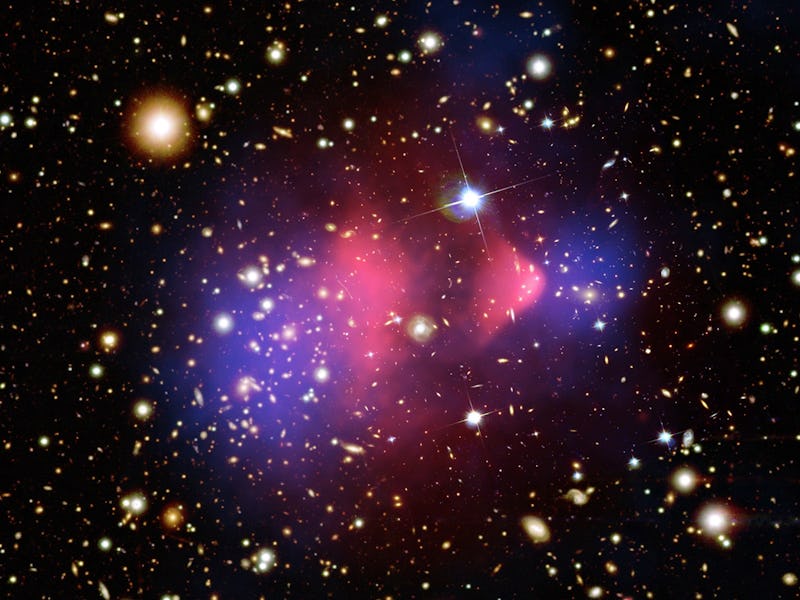Japanese Astronomers Solve Mysterious Galactic Murder Spree

The best kind of murder mystery is the kind that can be studied safely from a distance and where no one actually dies — except some unfortunate galaxies. Scientists have long wondered what was behind the mysterious demises of a certain population of galaxies, expiring rapidly for no good reason. Researchers at the International Centre for Radio Astronomy Research (ICRAR) recently studied 11,000 galaxies and found an unexpected prevalence of a process called ram-pressure stripping. The phenomenon systematically depletes the gas supply — the galaxies’ “life-blood” for star formation — essentially starving them to death. A paper detailing the findings was published today in the Monthly Notices of the Royal Astronomical Society.
Galaxies live within clouds of dark matter, which are also called dark matter halos. When large halos “sweep” the gas away, the galaxies are left without sufficient material to form new stars — meaning that existing ones will eventually grow cold and die off with no replacements. The scientists already knew that ram-pressure stripping was present in the larger halos that surround galaxy clusters, but didn’t know just how widespread the phenomenon was — they now believe it’s potentially the leading cause of death, as it were, among galaxies that die at the hand of their local environments.
“During their lifetimes, galaxies can inhabit halos of different sizes, ranging from masses typical of our own Milky Way to halos thousands of times more massive,” Toby Brown, a PhD candidate at ICRAR and Swinburne University of Technology and the study’s first author, told ICRAR. “As galaxies fall through these larger halos, the superheated intergalactic plasma between them removes their gas in a fast-acting process called ram-pressure stripping.”
Still, there are other fun processes by which the universe kills off galaxies, like “strangulation” - a slower death in which a galaxy’s supply of star-making gas is used up faster than it can be replenished. According to Brown, ram-stripping is much faster:
“…[W]hat ram-pressure stripping does is bop the galaxy on the head and remove its gas very quickly of the order of tens of millions of years — and astronomically speaking that’s very fast.”
So that’s one space mystery down. Maybe if we’re lucky the next one solved will have something to do with aliens.